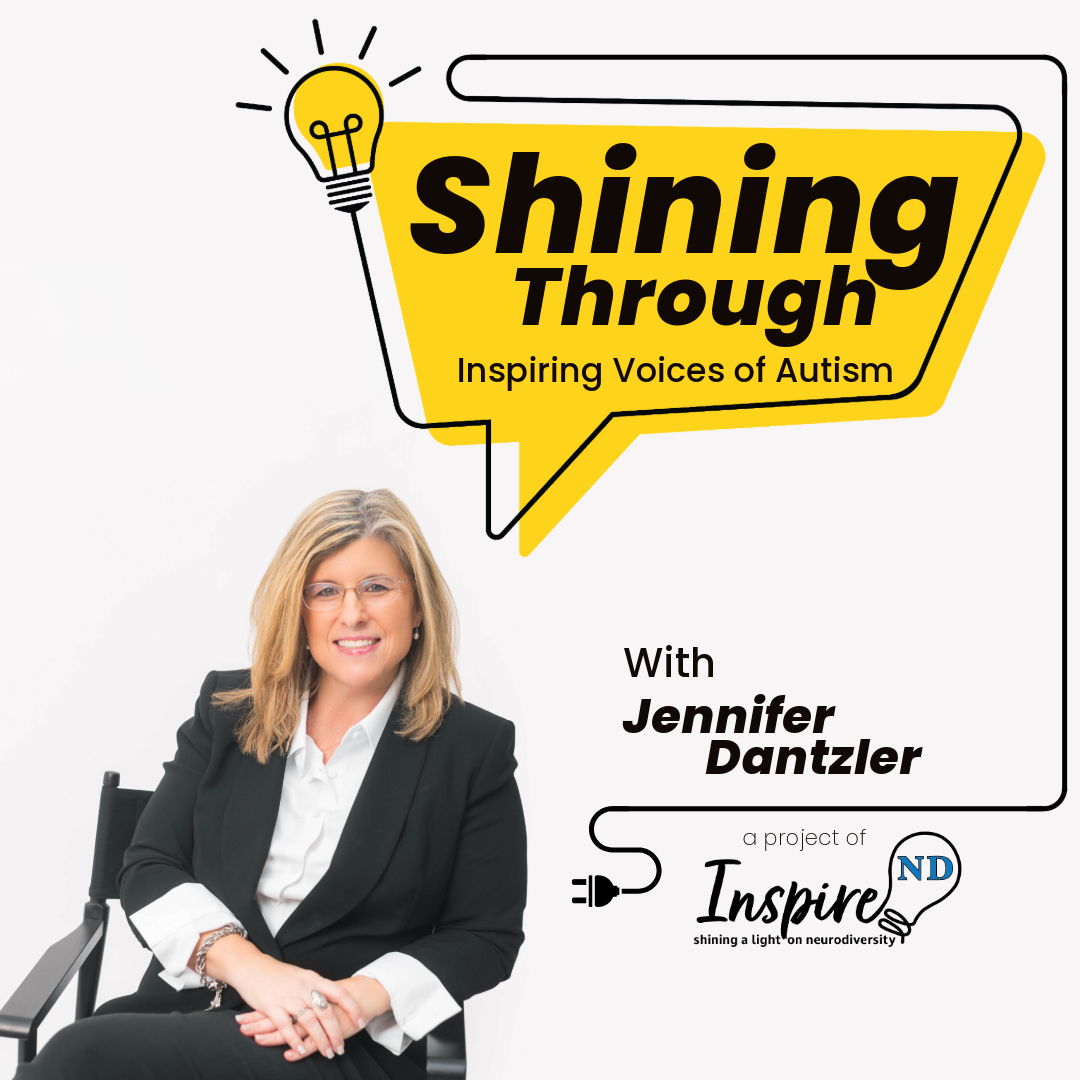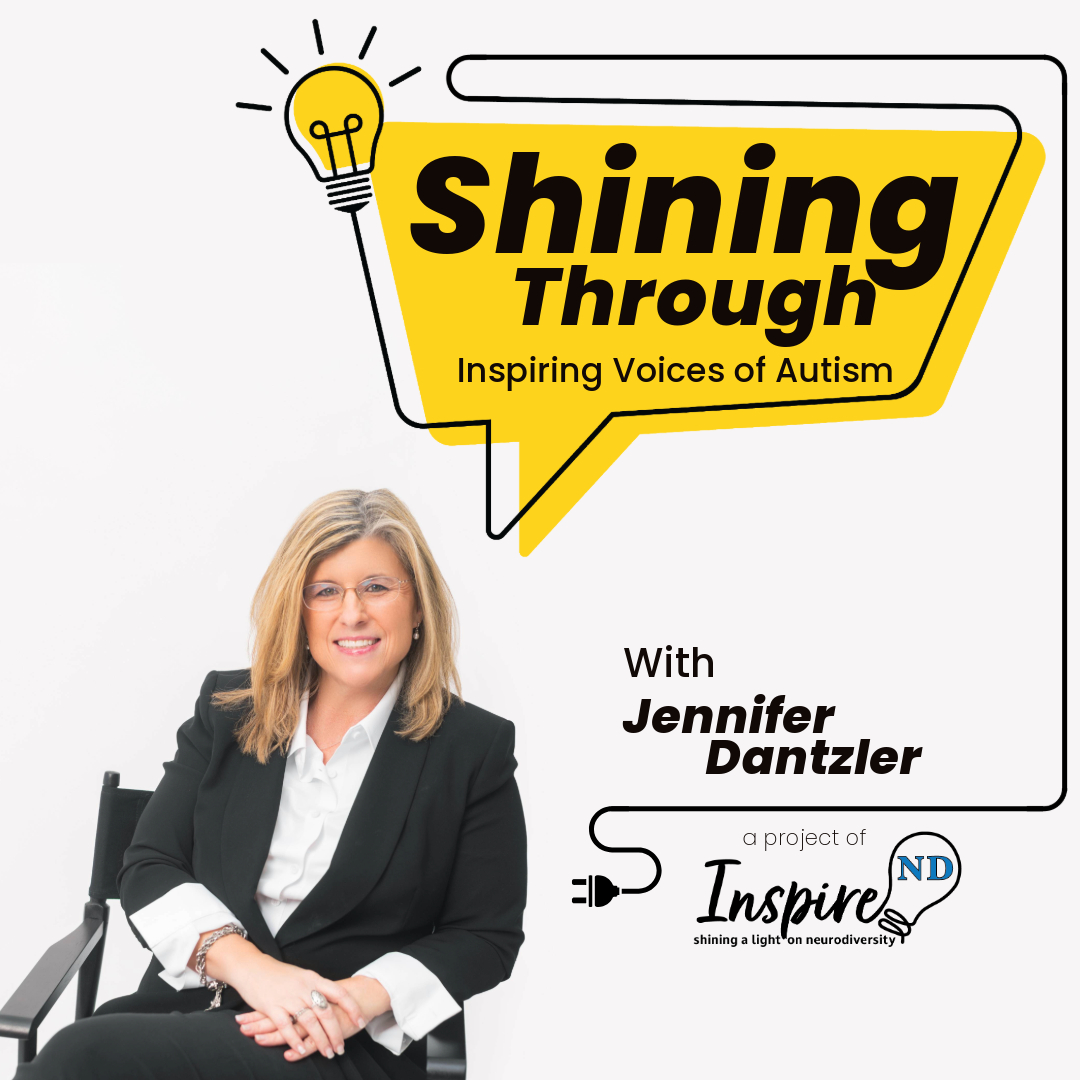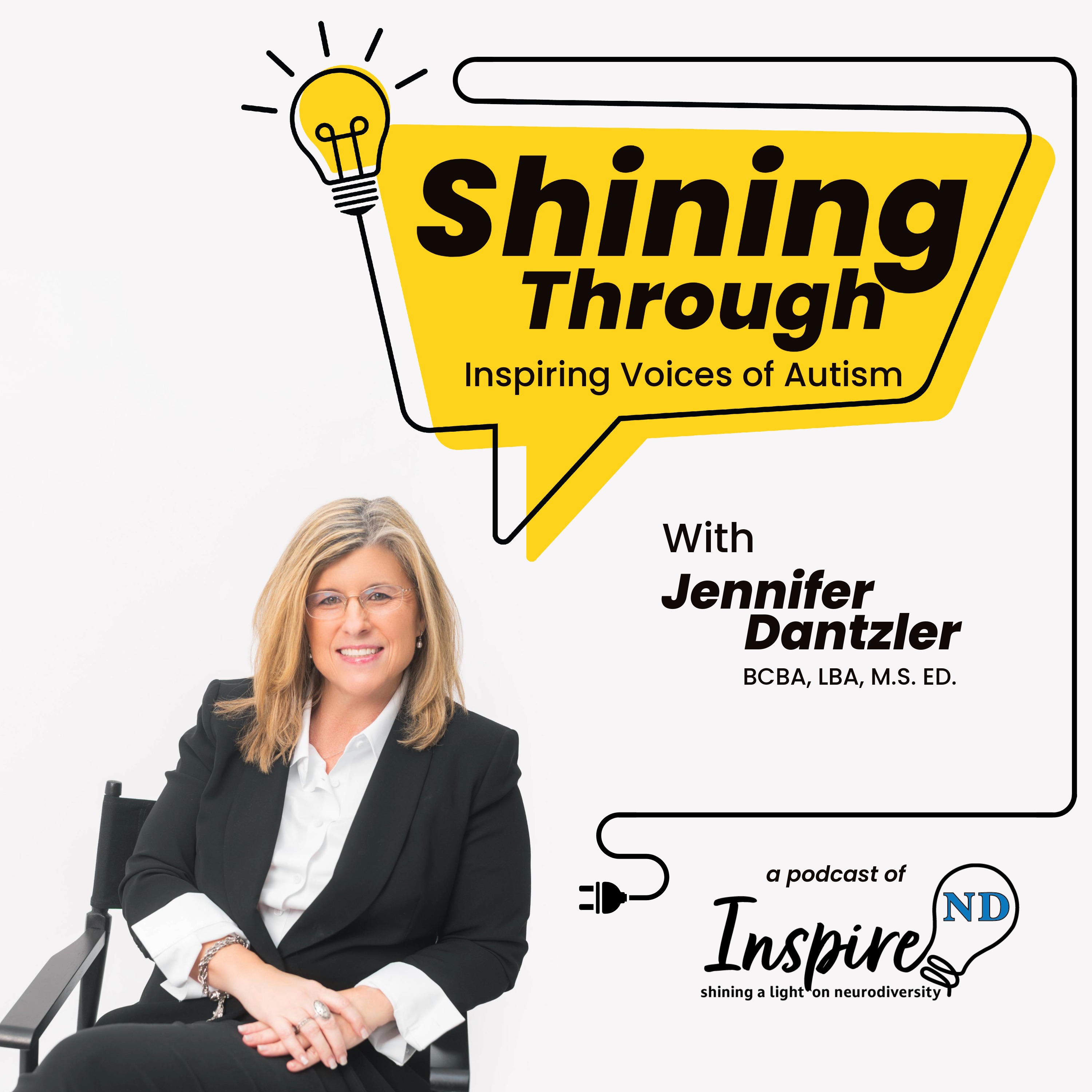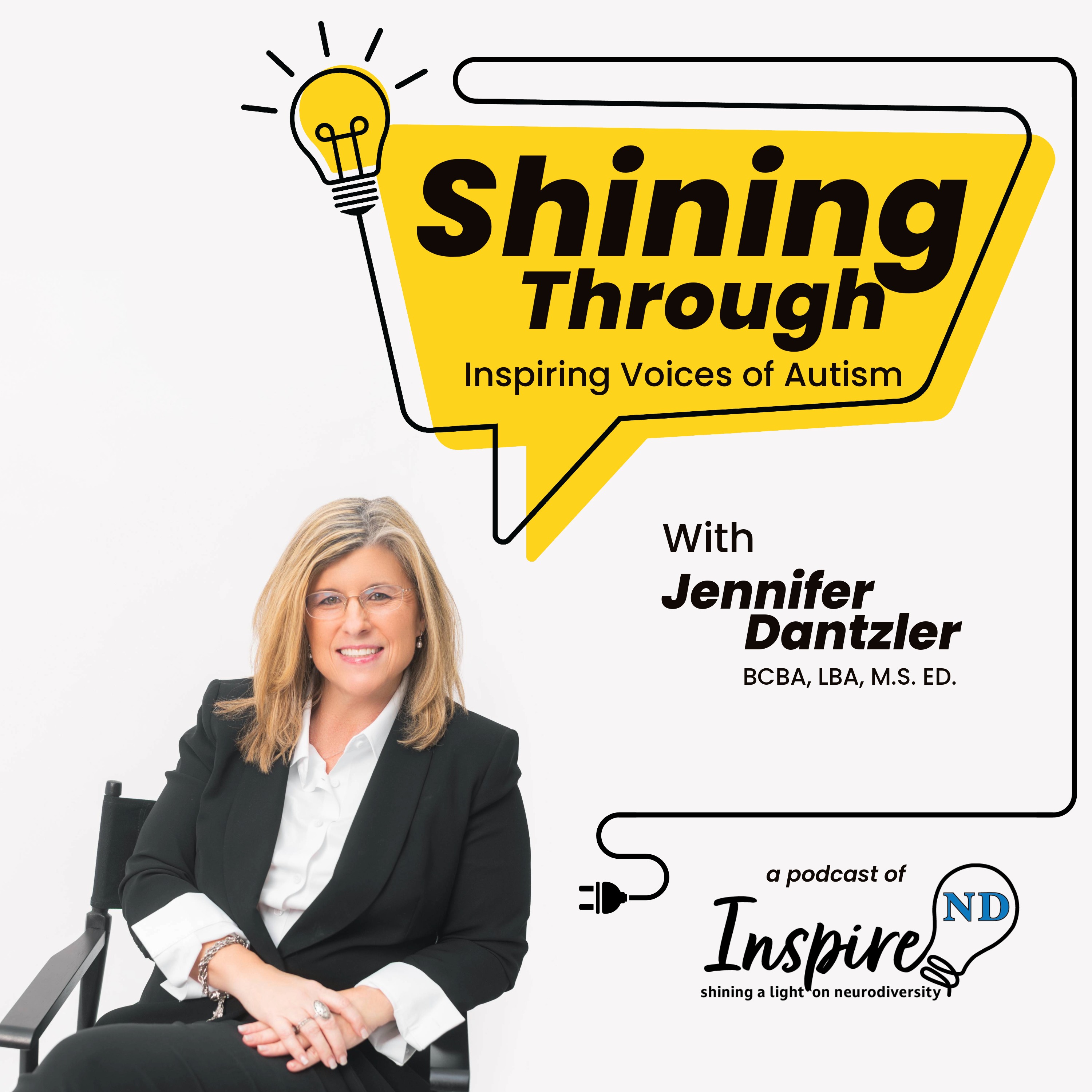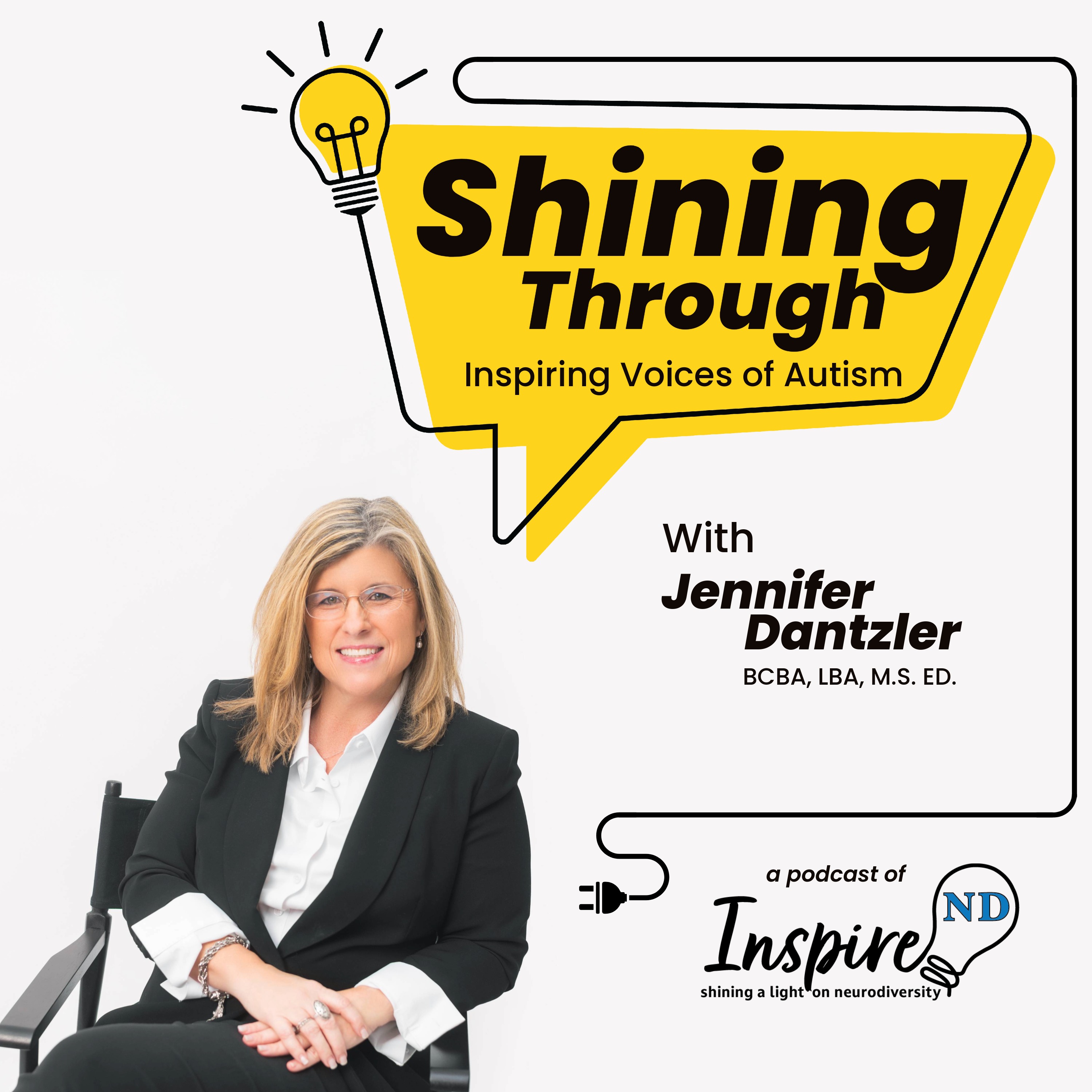Episode Transcript
[00:00:01] Speaker A: Welcome to Shiny Through Inspiring Voices of Autism with our show host, Jennifer Dantzler. My name is Cal, starts with a C, not K, and I'm on the autism spectrum and also TikTok Spectrum. Find my place called Calion Disney Head D. Thank you for taking the time to learn more about the world of autism. If you enjoy what you hear today, don't forget to subscribe to this podcast.
[00:00:28] Speaker B: Hello all and welcome to our very first episode of Shining Through Voices of Autism. How cool was that intro? Thank you to all of our neurodiverse individuals who have auditioned to do our intros and closing statements. In every episode, you will hear someone with neurodiversity welcoming us and encouraging everyone to subscribe. This is our launch episode where I explain our why. For many of you who know me, I'm big in understanding your personal why and the why you do what you do. And so that's why we're sitting here today to talk about the why, why I felt called to do this and launch this podcast series and hopefully you'll get as much out of it as I have. My personal why is. Back in high school, I was fortunate enough to go do mission work in Puerto Rico and was asked to sit with a little boy who. Who had hydrocephalicy and he could not be with the other children in the orphanage. And it was really in that moment that I guess you could say God said, this is your calling. And really, ever since then, the world of special needs, and more specifically autism, has been my calling. It's been my life. It's been my passion.
So back in 2003, I started a nonprofit called Including Kids here in the Houston, Texas area, where we served children on the autism spectrum. And then as those children grew, we started increasing the ages of the children we serve to serving adolescents and then eventually adults. From the beginning, one of our missions and goals was to be included in the community and help our children effectively integrate into their community. And one of the things that we underestimated was as we were out there teaching the children the skills they needed to be included, we were also teaching the community how to interact with our children who had special needs or differences, maybe ordered differently at a restaurant, maybe walked differently through the halls of a store. And so over time, not only was our goal to do direct services for people on the autism spectrum, but really also to help educate the community. And over the past 20 plus years, we've really increased our resources to do that. And now we are really focusing on being louder in the community, helping making A bigger impact in the community. Over the past really 30 years, I've interacted with so many incredible parents, professionals, self advocates that have so many incredible stories to tell and they don't really have that platform to share them. There are so many valuable lessons in what people have done over the years and what's worked and what's not worked. And one of the main goals of this podcast is so our voices of autism can shine through for others. I'm a big believer in not reinventing the wheel. I'm a big believer in coming together and collaborating whenever possible. One of my favorite expression is from Stephen Covey's 7 Habits of Highly Effective People where synergies is one plus one equals three. And so my goal with this podcast is that if I can sit down with one other person who has been on this journey of autism and then that conversation can be multiplied to benefit many, many others. Well, I would certainly call that a synergy. So a little bit about me and my credentials and kind of what gives me the right to sit here and do this. I am a board certified behavior analyst, a licensed behavior analyst in the state of Texas. I have been a special ed certified teacher in multiple states over the years.
As I mentioned, I did found my nonprofit almost 23 years ago and I've just had, I guess you could say, a lot of life lessons. I've worked with many, many, many people on the autism spectrum, from those who are profoundly autistic to those that are high functioning autistic, even back in the day called Asperger's. I've been a behavior analyst since well before there was even licensing or certification for behavior analysis. I have run an organization and tried to grow other leaders, other BCBAs, RBTs. And so really my goal for this podcast is to shine a light on the valuable insights that we can all learn about people with autism. I think there's still so much untapped knowledge. There are more people now who are self advocates who are able to explain how they interpret the world. There's more people out there wanting to support people on the autism spectrum. I know we're hearing a lot more of the word neurodiversity and we will be addressing that. Basically inspirend is inspirend for the term neurodiversity because we've also learned that if we program for people with autism and help create supports for people with autism, we're really helping create supports for a lot of different neurodiversities. And so our goal is really to get louder and be on a bigger platform. With autism being 1 in 36 and neurodiversity being 1 in 4, we have got to come together as a community and figure out how this can work. Our goal is to train more employers so that people with neurodiversity can have meaningful employment. Currently, 80% of people with neurodiversity are either unemployed or underemployed. And I don't know about you, but to me that's an awful stat and I want to change that stat. People with neurodiversity have incredible tools, incredible insights to give, and if companies can just maybe modify their practices, be a little bit more open minded and think a little bit outside the box, there's a whole world of untapped potential here that we need to access. First responders. Can you imagine being a first responder and seeing a young man walking down the street in just his shorts, his hands in the air and he's talking to himself. How does that first responder know? Is that person autistic, high or having a psychotic break?
Very hard to know. The challenges for first responders. They actually need to handle all of those situations a little differently. So one of my passions and big beliefs is that we need to help give first responders the tools to be able to support people on the autism spectrum. There's so much we want to do. The list could go on and on. We also recognize that because autism is a huge spectrum, not every episode is going to be directly applicable to maybe your situation. Maybe we have a parent on of a profoundly autistic child or we have a high functioning self advocate on and your situation doesn't exactly align with that. However, we really encourage you to continue listening because we do believe in every episode that there's going to be something you can get out of it. Sometimes it's just about a recharge. I knew that, but I need to do that again. Right? It's about reminding yourself that we need to continually working towards independence or raising the bar. There's always something we can get from everything we listen to and learn. And I hope that these episodes that this podcast, Shining Through Voices of Autism, really takes a special place in your heart, that you see value in the lessons that we're trying to share. I feel very passionately about autism and about the fact that we as a society are just now getting started with figuring out how all of us with different ways of thinking, different thought processes can and should come together. So join me on this journey as we shine a light on autism.
[00:08:35] Speaker A: Thanks for joining us on Shining through inspiring voices of autism. If you enjoyed this episode, be sure to subscribe, leave a review, and share with others who want to celebrate neurodiversity. Until next time, keep shining.
